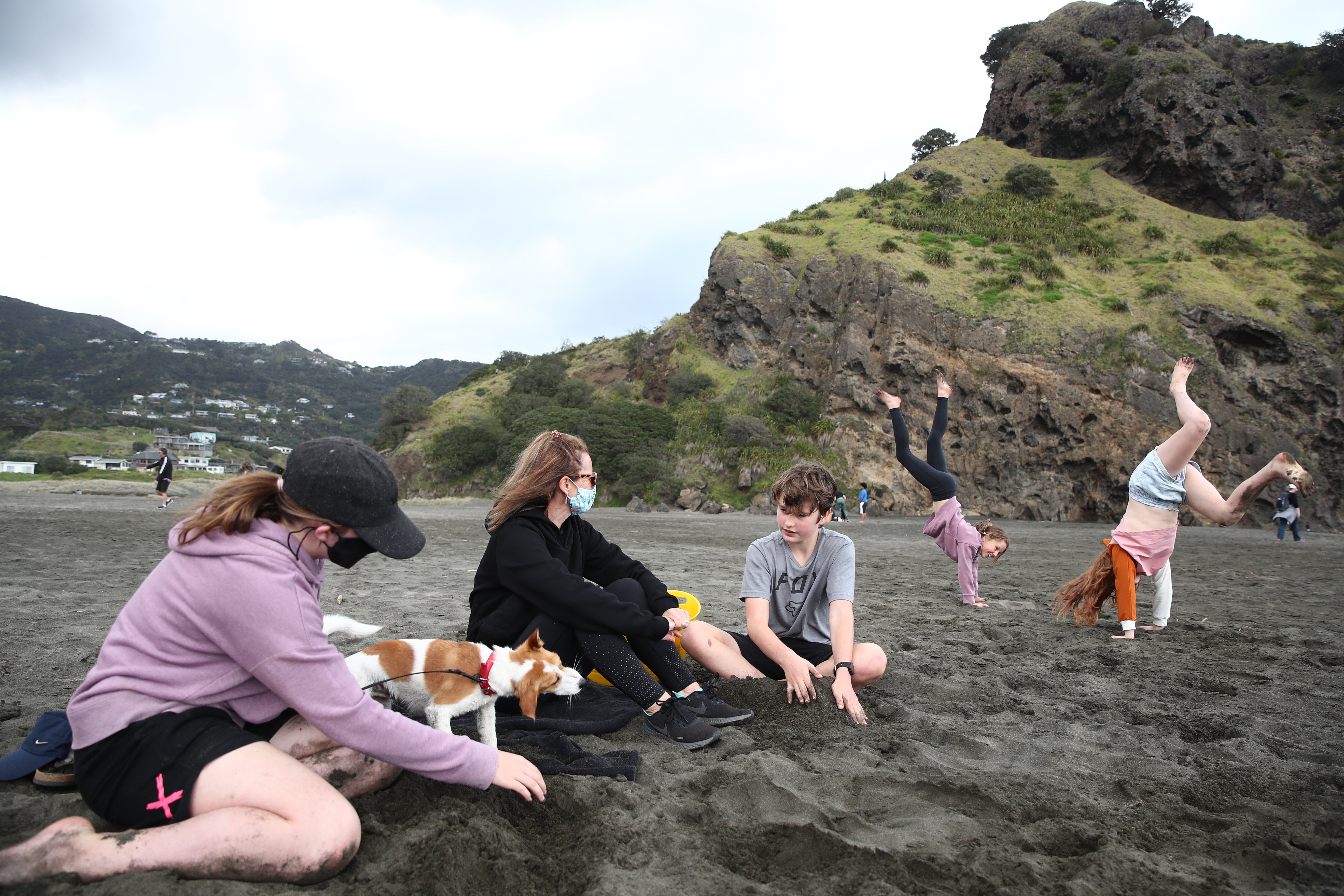
Its appearance in the small, vulnerable and relatively lowly-vaccinated communities of Kawhia and Cambridge prompted calls from local leaders to lock down the entire North Island, and further challenged the Government’s commitment to eliminating the virus.
‘‘We’ve got to try and contain it because there’s still a lot of people out there that aren’t vaccinated and we’re still likely to overwhelm our health services,’’ Waipa Mayor Jim Mylchreest said.
His concerns were supported by health experts, who have called for a tightening of restrictions to prevent further spread and more resources and support for vulnerable communities at the heart of the outbreak.
Covid-19 Response Minister Chris Hipkins said despite 39 cases reported yesterday, and many of the previous day’s cases being infectious in the community, they were almost entirely linked to each other.
Thirty were in Auckland but nine were in Waikato, the northern area of which was recently put into Alert Level 3, including cases in both Kawhia and Karapiro.
The Ministry of Health also reported the second death of the outbreak, a man in his 50s who had been in the intensive care unit for 40 days.
Just one of the new cases was not yet linked, along with four from the previous day.
‘‘These additional cases are reasonably well contained,’’ Mr Hipkins said.
Mr Hipkins said the nature of the outbreak was following similar patterns to overseas, and it had taken hold in vulnerable and marginalised communities.
Asked if the Government had failed to prepare for this situation, Mr Hipkins said ‘‘an awful lot of work’’ had gone into testing efforts and increasing vaccination rates in vulnerable communities.
Dr Dianne Sika-Paotonu, an immunologist at the University of Otago, said the treatment of the most vulnerable communities in the country was providing a ‘‘mirror on our society and reflecting who we really are as a country’’.
The spread was ‘‘not surprising’’, she said, given low vaccination rates in those new areas and restrictions being eased.
‘‘A further extension of the Alert Level 3 border will be likely needed to keep the new Waikato cases contained and limit further spread.’’
Meanwhile, Mr Hipkins announced a ‘‘National Action Day’’ on Saturday, October 16, to boost vaccination rates.
He said with more than half the eligible population now fully vaccinated and more than 80% having at least one dose, everyone had to do their bit to reach the remaining 20%.
‘‘We’ve got a plan and to make it work we’re asking everyone to contribute to a big, nationwide push for vaccination.’’
National leader Judith Collins, who had sent her deputy, Dr Shane Reti, back to Northland to give vaccinations, said they supported the plan.
On vaccine hesitancy, Ms Collins said she would share her own experience, and tell people she trusted the science.
‘‘Even though I do not understand all of the science, and the mRNA work that has gone on, but I am aware that I don’t have to understand everything to trust it.
‘‘One of the things I say to people is that a lot of people like KFC. I don’t, by the way, but a lot of people do and who knows what is in those secret herbs and spices? And yet people still eat it.’’
‘‘They are all linked to one another, they know what the chain of transmission is. But if we start to see more cases popping up the dynamic changes quickly.’’
Mr Hipkins did not rule out putting wider regions into Level 3 and extending the boundary, but said at this stage the outbreak appeared to be under control.
The nature of the spread was linked to a ‘‘large gang presence’’, Mr Hipkins said.
He noted that some people in the outbreak had been more ‘‘active’’ than permitted under alert levels.
‘‘Some of the people involved have been more active than would be consistent with the alert levels in the areas they have been.’’
He also addressed questions about how the Government was interacting with the gang community, including granting exemptions for two leaders to enter Auckland to assist with promoting vaccinations and testing.











